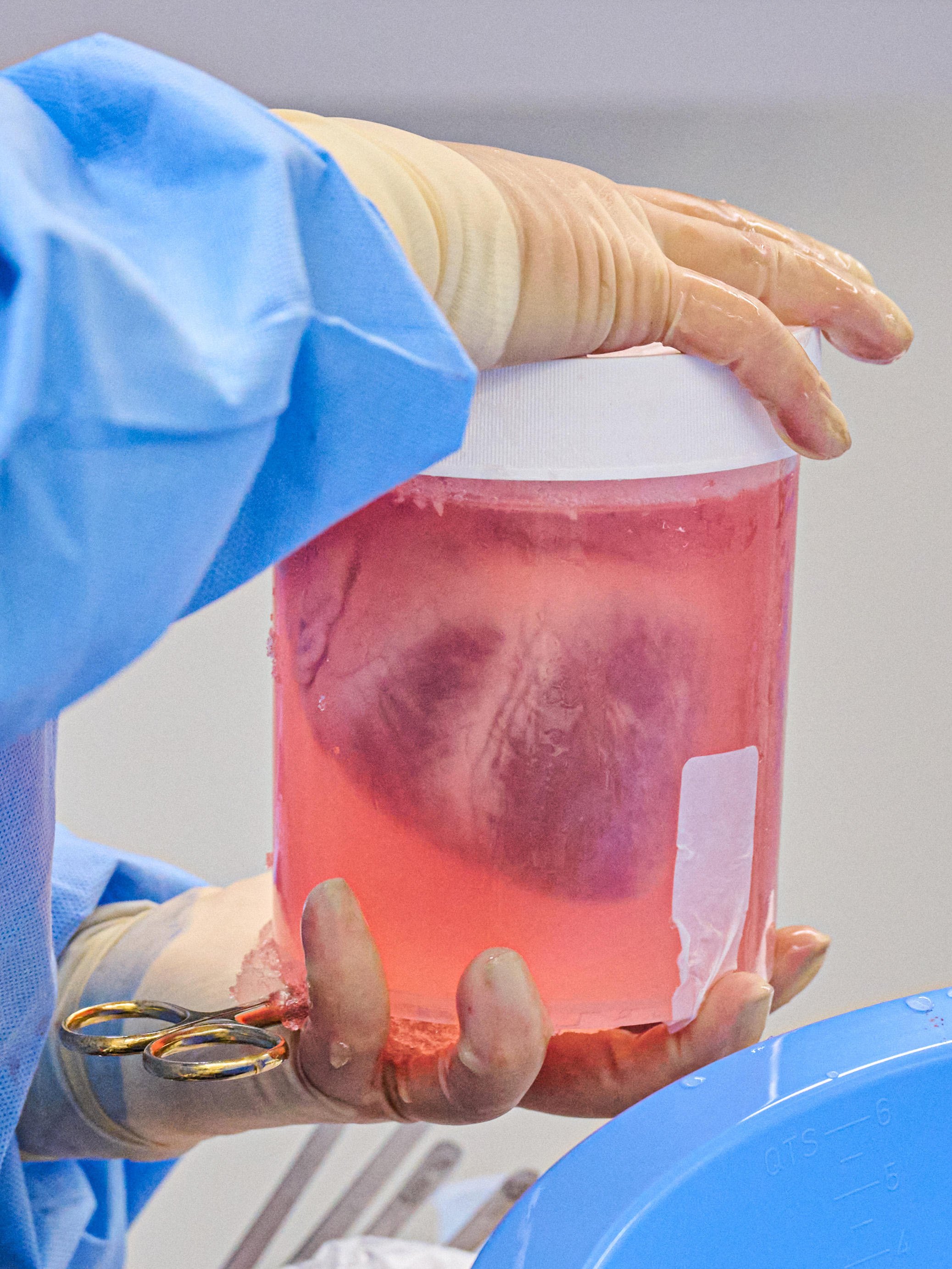Organs on demand: 10 Breakthrough Technologies 2023
Engineered organs could put an end to transplant waiting lists.

WHO
eGenesis, Makana Therapeutics, United Therapeutics
WHEN
10 to 15 years
For two months last year, a 57-year-old man named David Bennett lived with a pig heart beating inside his chest. Surgeons at the University of Maryland had put it there to see: Could a gene-edited pig’s heart keep a person alive?
Far more people need an organ transplant to live than can get one. There are around 130,000 organ transplants each year around the world, but many more people die waiting for an organ or because they never even made it onto a transplant waiting list.
Animal organs are one potential solution. But it’s not easy to overcome the human body’s natural revolt against them. For example, sugars on the surface of pig tissue can send our immune system into attack mode. Drugs can help mute the response, but it’s not enough. So biotech companies have used gene editing to modify pigs, removing those sugar molecules and adding other genes to make the pigs seem more human-like.
By editing the DNA of pigs in this way, several biotech companies have now created animals whose organs are more compatible with human bodies. Though Bennett died, and a virus was found in the transplanted organ, his doctors claim the pig heart he received never developed classic signs of organ rejection. Now they’re planning studies with more patients.
In the future, organ engineering might not involve animals at all. Researchers are in the early stages of exploring how to engineer complex tissue from the ground up. Some are 3D-printing scaffolds in the shape of lungs. Others are cultivating blob-like “organoids” from stem cells to imitate specific organs. In the long term, researchers hope to grow custom organs in factories.
Whether they’re grown in animals or built inside manufacturing plants, an unlimited supply of organs could make transplantation more common, and give far more people access to replacement parts.
Read about Martine Rothblatt, the entrepreneur dreaming about factories of unlimited organs.
Deep Dive
Biotechnology and health
Ethically sourced “spare” human bodies could revolutionize medicine
Human “bodyoids” could reduce animal testing, improve drug development, and alleviate organ shortages.
An ancient man’s remains were hacked apart and kept in a garage
Why archaeologists are increasingly leaving historic sites untouched until we have less destructive technologies for studying them.
De-extinction scientists say these gene-edited ‘woolly mice’ are a step toward woolly mammoths
The animals, the first to have been created by Colossal Biosciences, have fluffy coats and curly whiskers.
Game of clones: Colossal’s new wolves are cute, but are they dire?
Colossal Biosciences claims it has revived an extinct species, but scientists outside the company are skeptical.
Stay connected
Get the latest updates from
MIT Technology Review
Discover special offers, top stories, upcoming events, and more.